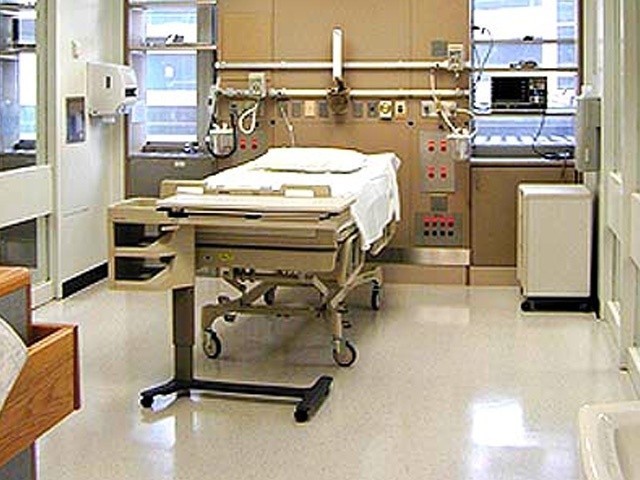Republican leaders lauded the idea Monday, the opening day of the General Assembly's annual session. But at least one Democratic leader said questions might be raised about the constitutionality of such a move.
At issue is the so-called "bed tax," which is an assessment on Georgia hospitals' net patient revenue. The yield more than $230 million this year is used as state matching money to secure another $400 million-plus of federal support for the Medicaid insurance program for low-income Georgians.
The money is paid back to hospitals via a higher payment rate for treating Medicaid patients. But the assessment, which was originally adopted in 2010, expires in June at the end of the current budget year and, with no replacement, would blow a hole in the state budget.
The issue has been a flashpoint leading up to the session. Health care providers have warned that losing the money would mean hospitals closures and a reduction of health-care access as more physicians declined to treat Medicaid patients. But anti-government advocates, led by national GOP powerbroker Grover Norquist, have urged lawmakers here not to extend a deal, which they characterize as a tax hike.
To sidestep that uncomfortable choice, the Deal administration on Monday unveiled legislation that would allow a state board that sets health-care policy to establish assessments on hospital revenues, rather than have the Assembly do it directly. Spokesman Brian Robinson said the governor's floor leaders would carry the legislation in both chambers.
Georgia Hospital Association spokesman Kevin Bloye praised Deal's outline, though it differs from the industry's call to extend the existing 1.45 percent levy, with a few changes that would benefit private hospitals that lose money under the existing plan because they don't treat many Medicaid patients.
"We are entirely on board with this and are thankful for the governor's leadership," Bloye said.
The initial draft gives the Board of Community Health the virtual taxing authority through June, 30, 2018, or five state budget cycles.
House Speaker David Ralston, R-Blue Ridge, called the plan "a fair proposal."
Ralston noted that a similar scenario has been in place for years in the nursing home industry: The Board of Community Health sets assessments on the providers and then uses that money to get federal cash with the entire pot then redistributed.
Majority Leader Larry O'Neal, R-Bonaire, suggested members will be grateful to avoid voting on something that can be called a tax. ``It got unfairly characterized as a tax when nothing ever showed up as a tax on anyone's hospital bill,'' he said.
O'Neal conceded that challengers in 2014 legislative races still could accuse sitting lawmakers of "voting for a tax" even if it's the state health board establishing the details. ``Probably so,'' he said. ``But we're beyond elections and it's time to deal with the policy that's right for Georgia.''
Rep. Stacey Abrams, the House Democratic leader, was more skeptical, calling it ``a novel approach'' and adding that she wants to ``understand how it would work in practice.''
Abrams cautioned, though, that the House bill should be the one that moves, because fiscal bills must by law originate in the lower chamber. Abrams, an Atlanta attorney, also said she wants to explore questions about whether the model would effectively shift taxing authority which constitutionally rest with the Assembly to the executive branch. The board comprises nine appointees from the governor.
Senate Appropriations Chairman Jack Hill, R-Reidsville, said, ``I think some people will think that's ceding authority.'' But Hill said he had no problem with the proposal and noted that the board has a track record of independently setting policy, regardless of whether legislators approve.
The Hospital Association, Bloye said, has little interest in debating constitutional theory, though he made the organization's argument nonetheless.
"We've always said this is not a tax," he said. "It's a provider fee that we willingly pay. From our perspective, this is the best alternative out there to continue to provide Medicaid services for the Georgians who need them."

http://accesswdun.com/article/2013/1/257172
